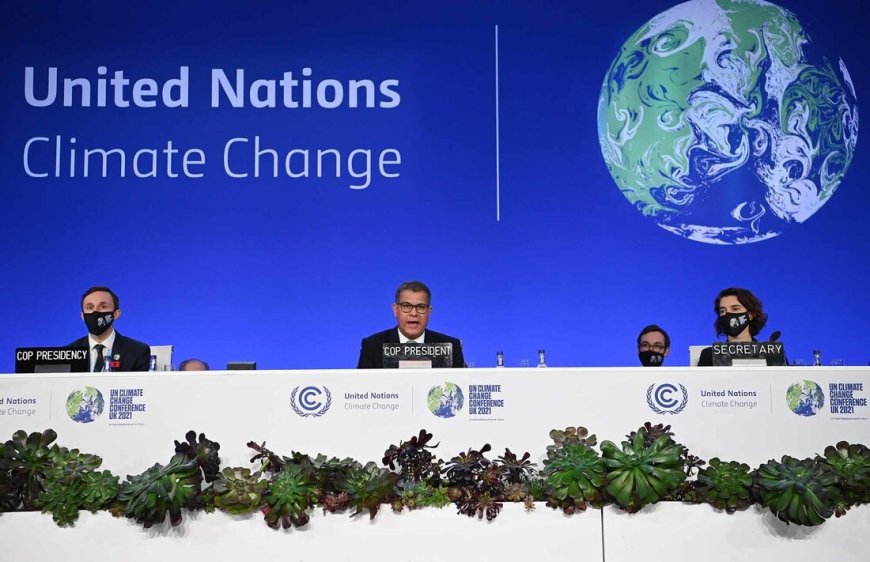Global Climate Summit 2025: A Turning Point for Our Planet's Future
The Global Climate Summit 2025, currently taking place in Dubai, UAE, has emerged as a crucial platform for world leaders, environmental experts, and activists to discuss and implement strategies to combat climate change. As climate crises intensify globally, this summit serves as a defining moment for shaping policies and commitments to ensure a sustainable future.

Key Agendas of the Summit
The Global Climate Summit 2025 is focusing on several urgent climate-related issues, including:
1. Net-Zero Commitments and Carbon Reduction Goals
One of the main highlights of the summit is the renewed push for net-zero carbon emissions. Several countries, including the United States, China, India, and the European Union, are setting stricter targets to reduce greenhouse gas emissions. The primary goal is to limit global warming to 1.5°C above pre-industrial levels, as outlined in the Paris Agreement.
Major discussions revolve around:
- Strengthening carbon tax policies to incentivize industries to cut emissions.
- Phasing out fossil fuel subsidies and investing in renewable energy.
- Enhancing global collaboration for carbon capture technologies.
2. Renewable Energy Expansion
Countries are emphasizing the shift towards solar, wind, and hydropower. Investments in green hydrogen and nuclear energy have also gained traction. Key players such as Germany, the United Kingdom, and Canada are pledging to increase their renewable energy capacities to reduce dependence on fossil fuels.
Key initiatives include:
- Solar and wind energy expansion: Scaling up projects in Africa, Asia, and South America.
- Global Energy Fund: A new funding mechanism to support developing nations in their transition to renewable energy.
3. Climate Adaptation and Disaster Resilience
With extreme weather events on the rise, from wildfires in the US to floods in Europe and Asia, the summit is prioritizing climate adaptation strategies. Governments are discussing investments in:
- Flood-resistant infrastructure in coastal cities.
- Drought-resistant crops for food security.
- Early warning systems for climate-related disasters.
4. Financial Aid for Developing Nations
One of the most critical discussions involves funding for climate-vulnerable nations. Wealthier nations are being urged to fulfill their commitment of $100 billion annually to help poorer countries transition to sustainable energy and protect themselves from climate-related disasters.
Key financial agreements include:
- Increased funding for the Green Climate Fund (GCF).
- More accessible climate loans with lower interest rates for developing countries.
- Expansion of public-private partnerships for climate financing.
5. Deforestation and Biodiversity Protection
As deforestation rates continue to rise, particularly in the Amazon, Central Africa, and Southeast Asia, world leaders are pushing for stricter regulations to protect forests. The Amazon Rainforest Protection Initiative and the Global Reforestation Pledge are key agreements being discussed.
6. Technological Innovations and Climate Solutions
Technology is playing a significant role in climate action. Innovations in electric vehicles (EVs), AI-driven climate monitoring, and carbon capture are being promoted. Companies like Tesla, Google, and Microsoft are showcasing their latest advancements in sustainable technology.
Major Announcements and Agreements
Some of the biggest commitments and agreements announced at the summit so far include:
- United States pledging a 40% reduction in carbon emissions by 2035.
- China accelerating its shift from coal to renewable energy.
- European Union proposing a climate tariff on imported goods with high carbon footprints.
- India increasing its solar energy capacity to 500 GW by 2030.
- African Union launching the Great Green Wall project to combat desertification.
Challenges and Criticism
Despite the optimism, the summit has faced criticism from environmental groups, who argue that many governments are not acting fast enough. Some activists have called out greenwashing tactics used by corporations and have demanded stricter accountability measures.
Conclusion: The Road Ahead
The Global Climate Summit 2025 represents a pivotal moment in the global fight against climate change. While significant progress has been made, the success of the summit will depend on how well nations implement their commitments. With climate disasters becoming more frequent, the world is watching closely to see if these promises turn into meaningful actions.
This summit must mark the beginning of a decade of transformative change—a future where sustainability is not just an option but a necessity.
What's Your Reaction?
 Like
0
Like
0
 Dislike
0
Dislike
0
 Love
0
Love
0
 Funny
0
Funny
0
 Angry
0
Angry
0
 Sad
0
Sad
0
 Wow
0
Wow
0



















































